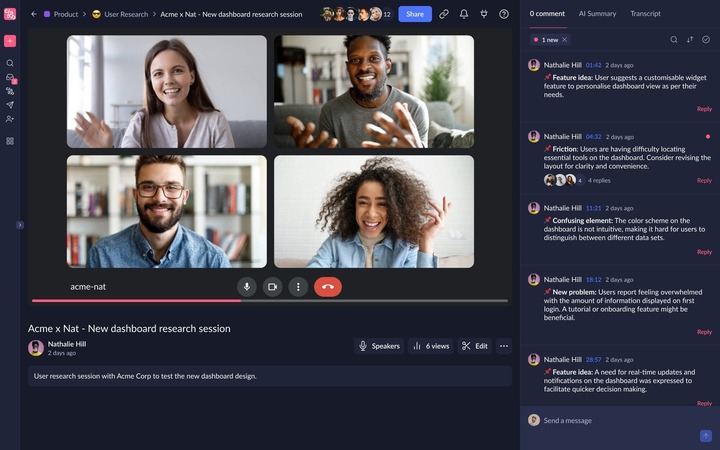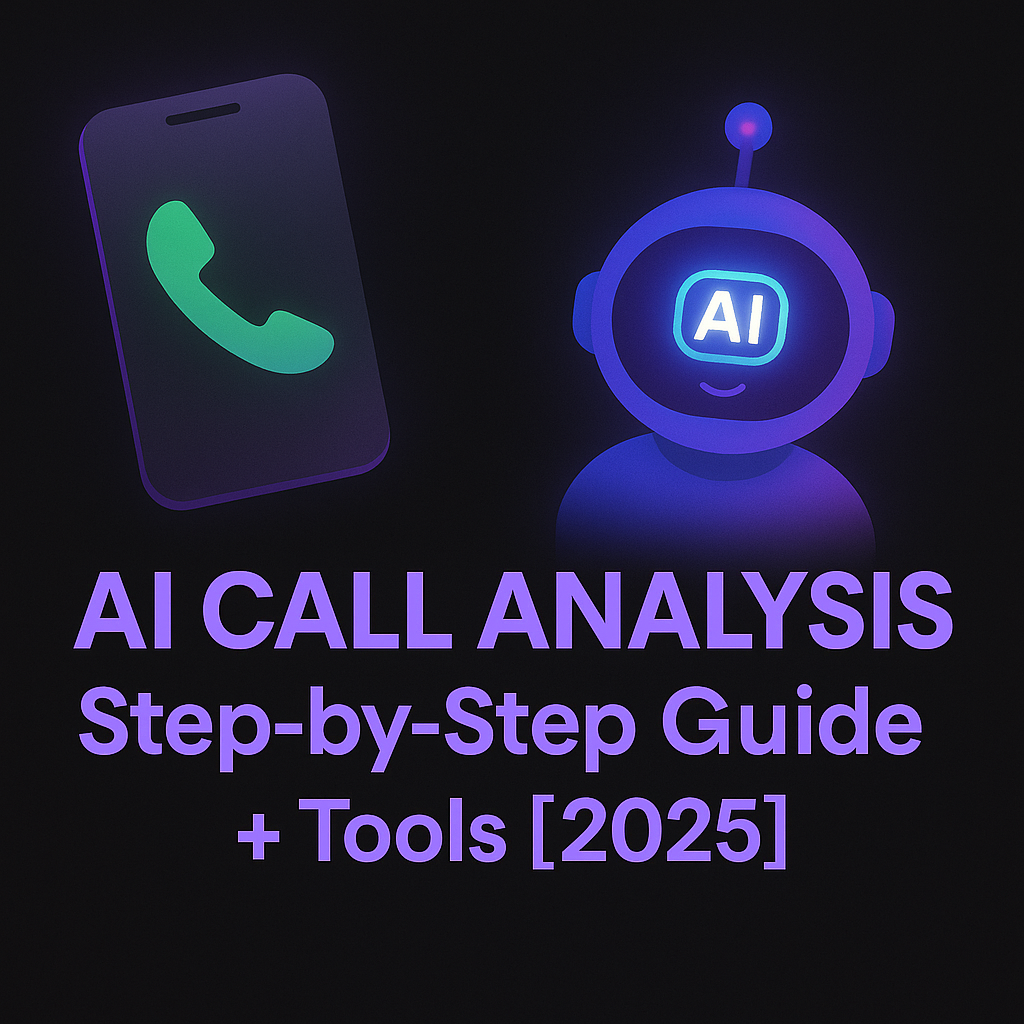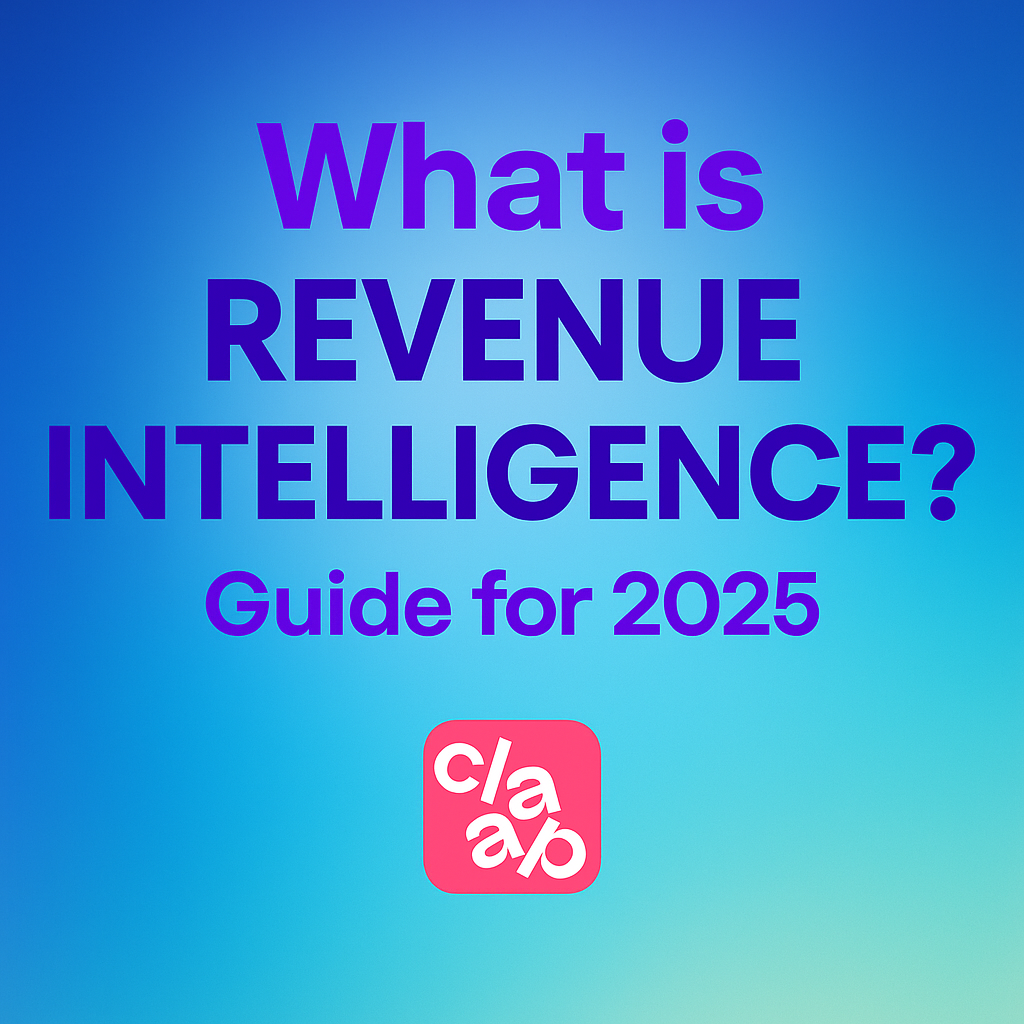
Crafting Successful Interviews: Your Ultimate Interview Template
What is an interview template?

An interview template is a structured document designed to guide and organize the interview process systematically. Be it digital or on paper, it acts as your ultimate companion throughout the interview!
In this article, I will give you my very own templates! I will also teach you how to craft your own templates! But for now, let’s focus on the main topic: why you need interview templates.
Why use an interview template? The main use case: job interviews

If you are used to interviewing candidates for job interviews, then you know how hard it can be to evaluate the candidate efficiently while staying entirely objective. That’s where your template comes into play: let’s see how it can help you:
Stay organized during the interview
Your interview template will help you have a clear view on the organization of the interview (so you don’t forget what you have to talk about with the candidate). Your template will also help you take the appropriate time for each part of the interview. You don’t want to be pressed for time!
Don’t forget the important questions
You can write all the questions you will potentially ask on your template. So you have them at disposal throughout the interview and can ask the most relevant questions at the most relevant time!
Standardize interviews
Interview processes can be really frustrating for candidates. An interview template will allow you as a recruiter to have standardized interviews (if you have the same interview template as the other recruiters) and then guarantee fair conditions for candidates.
Evaluate the candidate
Have you ever completed an interview and found yourself unable to accurately evaluate the candidate’s performance? Like the communication skills were good, the problem-solving skills were good and the cultural fit was good, but you can’t say a lot more… The interview template is your life-saver here as you can include a scoring sheet to accurately evaluate your candidate.
Other use cases of interview templates

Interview templates are not limited to job interviews. I would actually advise you to use interview templates for other types of interviews. Let’s see together how it can be useful to you.
Conduct the interview properly
Would you imagine conducting a research interview without notes? Of course not. You need to have your ideas written down to know exactly what you want to get from your exchange. And there is no better way to do so than having an interview template
Keep track of the interview
No matter what type of interview you conduct, you will certainly want to write notes to keep track of it. For them to be the most readable and efficient, you should use a template. Or you can use Claap, an AI companion that will automatically take notes of your interviews and even record them.

Examples of interview templates

Alright, here we are—the part you've all been waiting for: actual downloadable templates! Let's kick things off with my own job interview templates, and then I will share with you a more general template.
H3 - Job interview template
The time indicated corresponds to a 1 hour interview.
Introduction - 5 mn
- Welcome the candidate
- Brief overview of the company and the position (Complete here with specific information)
- Icebreaker question: …………………………………………………………………………………………..
Answer:
………………………………………………………………………………………
Feedback:
………………………………………………………………………………………
Score:
☐ Needs improvement ☐ Satisfactory ☐ Good ☐ Excellent ☐ Outstanding
Questions to use:
- Describe yourself in three words. And don't worry, 'coffee enthusiast' totally counts as one!
- Tell me about a hobby or activity you're passionate about outside of work.
- What's a book or TV series you've recently enjoyed, and why did it capture your interest?
- Tell me about a random skill or talent you have that not many people know about.
- What's a fun fact about you that you think would surprise people?
Background and Experience - 10 mn (1-2 questions)
- Question 1: ………………………………………………………………………………………………………….
Answer:
………………………………………………………………………………………
Feedback:
………………………………………………………………………………………
Score:
☐ Needs improvement ☐ Satisfactory ☐ Good ☐ Excellent ☐ Outstanding
- Question 2: ………………………………………………………………………………………………………….
Answer:
…………………………………………………………………………………………
Feedback:
…………………………………………………………………………………………
Score:
☐ Needs improvement ☐ Satisfactory ☐ Good ☐ Excellent ☐ Outstanding
Example of questions:
- Walk me through your resume and highlight the key experiences that make you a strong fit for this position.
- Can you share a specific accomplishment from your previous role that you believe directly relates to the challenges of this position?
- Describe the most significant project you've worked on in your career. What was your role, and what impact did it have?
- How do you see your past experiences contributing to the success of our team/company?
- What led you to pursue a career in [industry/field]? How has your background prepared you for this role?
- In your previous role, how did you collaborate with your team to achieve common goals?
Skills and Qualifications - 15 mn (2-3 questions)
- Question 1: ………………………………………………………………………………………………………….
Answer:
……………………………………………………………………………………………
Feedback:
……………………………………………………………………………………………
Score:
☐ Needs improvement ☐ Satisfactory ☐ Good ☐ Excellent ☐ Outstanding
- Question 2: ………………………………………………………………………………….
Answer:
………………………………………………………………………………………………
Feedback:
………………………………………………………………………………………………
Score:
☐ Needs improvement ☐ Satisfactory ☐ Good ☐ Excellent ☐ Outstanding
- Question 3: ………………………………………………………………………………………………………….
Answer:
………………………………………………………………………………………………
Feedback:
………………………………………………………………………………………………
Score:
☐ Needs improvement ☐ Satisfactory ☐ Good ☐ Excellent ☐ Outstanding
Example of questions:
- What specific skills do you think make you a strong fit for this role?
- How would you rate your proficiency in [specific skill required for the job]? Can you provide examples of how you've applied this skill in your previous roles?
- Tell us about a time when you successfully used [a relevant skill] to solve a challenging problem at work.
- What steps do you take to keep your [specific skill] sharp and up-to-date with industry best practices?
- Can you provide examples of how you've used [another specific skill] to streamline processes or improve efficiency in your previous positions?
- How do you approach learning new technologies or tools that are relevant to your role? Can you share a recent example?
- What experience do you have with [specific software or technology mentioned in the job description]? How comfortable are you with learning new tools?
- How do you prioritize tasks when multiple deadlines are approaching, and how has your [specific skill] helped in managing your workload effectively?
- What certifications or training do you possess that directly relate to the requirements of this position?
Behavioral Questions - 10 mn (1-2 questions)
- Question 1: ………………………………………………………………………………………………………….
Answer:
………………………………………………………………………………………………
Feedback:
………………………………………………………………………………………………
Score:
☐ Needs improvement ☐ Satisfactory ☐ Good ☐ Excellent ☐ Outstanding
- Question 2: ………………………………………………………………………………………………………….
Answer:
………………………………………………………………………………………………
Feedback:
………………………………………………………………………………………………
Score:
☐ Needs improvement ☐ Satisfactory ☐ Good ☐ Excellent ☐ Outstanding
Example of questions:
- Tell me about a time when you had to deal with a difficult team member. How did you handle the situation, and what was the outcome?
- Describe a situation where you had to make a tough decision. What factors did you consider, and what was the result?
- How do you handle stress and pressure in the workplace, and can you share a specific example of when you faced a high-pressure situation?
- Tell me about a time when you had to take the lead on a project. How did you motivate your team, and what was the outcome?
- Share an example of when you had to give constructive feedback to a colleague. How did you approach it, and what was the response?
- Describe a situation where you had to resolve a conflict within your team. What steps did you take, and what was the resolution?
- Tell me about a project that didn't go as planned. What challenges did you face, and what did you learn from the experience?
- How do you ensure effective communication within a team, especially when working with diverse individuals? Can you provide an example?
- Describe a time when you had to quickly adapt to a change in project requirements. How did you handle it, and what was the outcome?
- Share an example of when you had to influence others to adopt a new idea or approach. How did you approach it, and what was the result?
Cultural Fit - 10 mn (1-2 questions)
- Question 1: ………………………………………………………………………………………………………….
Answer:
………………………………………………………………………………………………
Feedback:
………………………………………………………………………………………………
Score:
☐ Needs improvement ☐ Satisfactory ☐ Good ☐ Excellent ☐ Outstanding
- Question 2: ………………………………………………………………………………………………………….
Answer:
………………………………………………………………………………………………
Feedback:
………………………………………………………………………………………………
Score:
☐ Needs improvement ☐ Satisfactory ☐ Good ☐ Excellent ☐ Outstanding
Example of questions:
- What do you know about our company culture, and how do you think you would fit into it?
- Describe the work environment where you feel you thrive the most. How does it align with our company culture?
- How do you prioritize work-life balance, and how does this align with our company's values?
- In your opinion, what makes a workplace inclusive, and how have you contributed to creating an inclusive environment in your previous roles?
- Can you share an example of when you demonstrated flexibility and adaptability in a work setting?
- What role do you believe company values play in the day-to-day work of an employee, and how have you demonstrated alignment with values in your career?
- How do you approach giving and receiving feedback, and how does this align with our company's feedback culture?
- What aspects of our company's mission and vision resonate with you, and how do you see yourself contributing to our long-term goals?
- How do you approach building relationships with colleagues and fostering a positive work environment?
Conclusion
- "Do you have any questions for us about the company or the team?"
- “Thank you for your time and interest! We will reach back to you as soon as possible. For the next steps …” (Complete here with specific information)
Additional notes
……………………………………………………………………………………………………………
Other interview templates

You already know, you should use templates for all of your interviews. And I’m in a generous mood. So here is a more general interview template for you:
Introduction - 5 mn
- Welcome and thank your interlocutor for being here
- Present the agenda
Subject A - 15 mn
- Question 1: ………………………………………………………………………………………………………….
Answer:
………………………………………………………………………………………
Notes:
………………………………………………………………………………………
- Question 2: ………………………………………………………………………………………………………….
Answer:
………………………………………………………………………………………
Notes:
………………………………………………………………………………………
- Question 3: ………………………………………………………………………………………………………….
Answer:
………………………………………………………………………………………
Notes:
………………………………………………………………………………………
Subject B - 20 mn
- Question 1: ………………………………………………………………………………………………………….
Answer:
………………………………………………………………………………………
Notes:
………………………………………………………………………………………
- Question 2: ………………………………………………………………………………………………………….
Answer:
………………………………………………………………………………………
Notes:
………………………………………………………………………………………
- Question 3: ………………………………………………………………………………………………………….
Answer:
………………………………………………………………………………………
Notes:
………………………………………………………………………………………
Subject C - 10 mn
- Question 1: ………………………………………………………………………………………………………….
Answer:
………………………………………………………………………………………
Notes:
………………………………………………………………………………………
- Question 2: ………………………………………………………………………………………………………….
Answer:
………………………………………………………………………………………
Notes:
………………………………………………………………………………………
Conclusion
- Thank your interlocutor for the time taken
- Give the next steps if applicable (Next interview…)
Additional notes
………………………………………………………………………………………
Don’t forget to use Claap with your templates: it will fill your interview templates automatically with the interview content so you can stop bothering with taking your own notes!

How to create your personal template

Even though our templates are absolutely extraordinary (they are right?), I could understand if you wanted more personalized templates. You may have specific requirements from your company or a specific type of interview to conduct. Here are the steps you need to follow in order to build your own interview template:
Understand the objective of your interview
To draft your template, you should be clear on the objective of your interview. Let’s take an example to make it clearer: you will interview a scientist for a research project. Your objective is to gather information on Animal Behavior. This can be separated into 3 subtopics: Communication and Social Structures, Cognitive Abilities & Problem Solving and Ecological Interactions & Adaptations. Well, that’s a good starting point! Let’s move on to the next step.
Prepare the important questions
For the second step, you just have to transform the subtopics into questions. For instance for the subtopics identified previously, we could think of questions such as:
Communication and Social Structures
- How do animals use chemical signaling to communicate within a social group, and what role does this communication play in establishing hierarchies?
- Can you provide examples of complex vocalizations in animals and explain how these vocalizations contribute to social interactions and group cohesion?
- In species with intricate mating systems, what behavioral cues are involved in mate selection, and how do these behaviors contribute to reproductive success?
Cognitive Abilities & Problem Solving
- What are some notable examples of animal problem-solving abilities, and how do these abilities differ across species?
- How do researchers design experiments to study the cognitive abilities of animals, and what insights have been gained from these experiments?
- Can you discuss the evolutionary implications of advanced cognitive abilities in certain animal species and how these abilities contribute to their survival strategies?
Ecological Interactions & Adaptations
- What are some notable examples of animal problem-solving abilities, and how do these abilities differ across species?
- How do researchers design experiments to study the cognitive abilities of animals, and what insights have been gained from these experiments?
- Can you discuss the evolutionary implications of advanced cognitive abilities in certain animal species and how these abilities contribute to their survival strategies?
Structure your interview

When you have the important questions, you have the basis of your template. But you are not going to hit your interlocutor with a whole bunch of questions as soon as the interview starts right? That’s why you should prepare:
- Your introduction: You can prepare a short introduction of yourself in 1 or 2 sentences. You can also prepare icebreakers to help your interlocutor feel comfortable.
- Your conclusion: Simple but essential! Here you should prepare a sentence to conclude the interview conveniently. You should also mention what is next (for a job interview talking about the delay to be expected before hearing back for instance)
Include time indicators
Most interviews will have limited time. This is why it is so important to prepare how long you should spend on each part of your template. For that, write an expected time for each section of your template.
Pro tip: As you are always thinking ahead, the total time of the sections of your template is lower than the actual time expected for your interview. This way, no issue with answering the questions of your interlocutor or deviating from the main topic at the end of the interview!
Add specific requirements
What is the use of a personalized template if it is not personalized to your specific requirements? If you have specific guidelines for your interview, don’t forget to adapt your template. For instance you might want to score candidates you interview for a position in your company. For that, you can include a scale from 1 to 5 for each thing you want to evaluate from the candidate.
Leave space for notes
Here you don’t have much to do. Just leave a blank area for any useful information or thoughts you want to mention and keep in mind.
Congratulations! You just created your own interview template!
The 5 reasons why you should use Claap for your interviews

Using an interview template is great, but using Claap is even better. Claap is an audio and video transcription tool that will allow you to (increase productivity formula). Here are the 5 reasons why Claap is the BEST tool to use if you conduct interviews.
Claap is a meeting recorder
Okay, I agree, not all interviews are virtual, but let’s be honest, most of our interviews are. And in order not to miss any crucial information, you should simply record it. Well, a meeting recording tool such as Claap will do it for you on platforms like Zoom or Google Meet.
Claap is an automatic transcription tool
Claap is an automatic notetaker. It means you don’t have to write your own notes, Claap does it for you. And trust me, Claap never misses important information.
Claap will summarize your interview and fill your template
Once it has recorded your interview and transcribed it, Claap will automatically summarize it with its AI features. And it will even fill your template with the information. You can truly concentrate on your interlocutor, Claap got you covered!
Claap allows you to easily share your insights on your interviews
You may want to share your interview or part of your interview with your teammates. Claap offers you great collaborative features for that. For instance, your teammates will be able to give feedback on a specific part of the recording. Team collaboration in its purest form.
Claap keeps your recorded interviews in a safe place
Remember when I told you one of the pros of having an interview template was to keep track of the interview? With Claap you can do even better. Claap offers an intuitive video wiki which will allow you to store your recorded interviews and find them efficiently when needed.

Because actions speak louder than words. Don't hesitate: try Claap today and witness the difference for yourself (free plan available with no credit card needed)!


